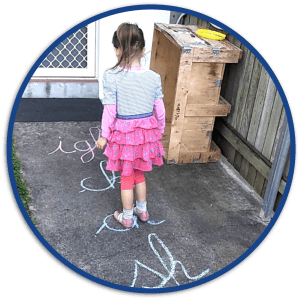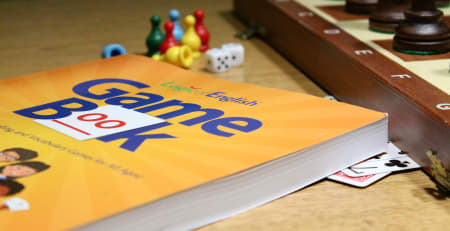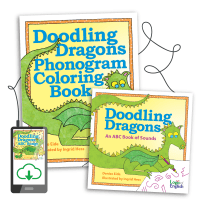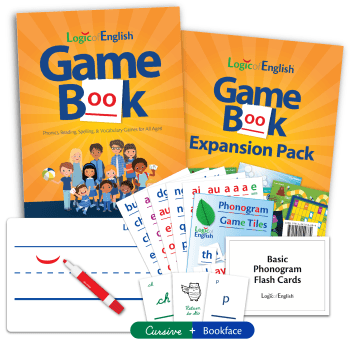Let's GROW Emerging Reading Skills Over the Summer!

Summer is the perfect time to practice reading skills taught during the school year and grow dendrites to strengthen neural pathways.
Dendrites are extended branches of a nerve that form a connection to other nerve cells (neurons) when we use knowledge we have learned. Continuing to practice helps the dendrites grow stronger. Healthy neural pathways build strong readers!

Like a tree sprouting a new leaflet from existing branches, new knowledge builds upon things that are already known. Growing new dendrites by practicing recently learned reading skills will ensure that children deepen the connections in their brain and further master what they have learned.
We know from research that when the brain is active and engaged while learning, learning moves to long-term memory, and it sticks. Why not take some time on the sunshiney summer days to review reading skills in a fun and active way and thus grow strong reading branches?
Get Messy!

One of the beautiful things about summer is that learning can move outside! Here are some exciting ways to review phonograms outdoors:
- Practice writing phonograms in shaving cream outside
- Paint the phonograms on concrete with water and a paintbrush
- Write the phonograms or spelling words in an outdoor sandbox
- Draw with sidewalk chalk on your driveway or porch
When your crew is finished getting messy, you can use the water hose to continue practicing the sounds. Have your kids shout out the phonogram’s sounds as they spray them away, or hold up a phonogram for your kids to shout as they jump into a pool or lake.
The sensory experiences while reviewing phonograms are sure to build strong reading branches! (Not sure you remember all of the phonograms? Our Phonogram & Spelling Rule Quick Reference might help!)

Get Moving!
The long summer days are a great time to get moving! Have your children play relay races to practice phonograms by running to draw a card, running back, and reading its sounds before tagging the next player. Play Simon Says: students must read the phonogram you hold up correctly in addition to completing the action you state. Play target practice by shooting darts, NERF® guns, or a bouncy ball at phonogram cards. Jump on a trampoline or have a family dance-off while listening to the Doodling Dragons ABC Songs.
One fantastic way to review phonograms while outside is to play a phonogram balance game on a curb. Using the curb as your balance beam, mark off a section as the beginning and the end of a beam with sidewalk chalk. Direct your child to stand at the beginning of the beam. Show them a phonogram. To advance one step, they must read the phonogram sound(s) correctly. If they fall off the beam, they must go back to the beginning.
Another fun idea might be to hide phonogram cards around your backyard or at a park and have your kids run around and find them. Once they find a hidden phonogram card, have them run to you and read it before trying to find another one. The person who finds the most phonogram cards wins the game! You can vary this game by letting your children hide the cards from you!
When the weather heats up, your family can also get moving by walking or biking to your local library to stock up on lots of great books to read to your children. Get moving and practice those reading skills in a new way!

Game Night!
Plan a family game night!
You can use commercial games such as HEDBANZ™, BANANAGRAMS®, or APPLES to APPLES™ to build spelling and vocabulary in a fun, family-centered way.
To practice phonograms together, write the phonograms on a Twister® mat. After flicking the spinner, have each person read the phonogram to which they want to move. Have fun together getting all twisted up.
Another option might be to have a phonogram fun night where your family plays Logic of English favorites. Some of the most popular games are Dragon, Speed, Phonogram Slap, and Rotten Egg. All of these games can be played using two decks of Phonogram Game Cards. If you’re using Logic of English Foundations or Essentials, you can find a list of games in the index of each teacher’s manual, and if you’re not, you can find all of them in the Logic of English Game Book.
Playing games together is a fantastic way to build strong reading skills!

Goodnight!
After a long day in the sunshine, it is time to say goodnight. As your child snuggles up for the evening, why not read one of the lovely books you picked up from the library? Here are some of our summertime family favorites to check out:
Picture Books:
- Summer Story (Brambly Hedge) by Jill Barklem
- Fireflies in the Night by Judy Hawes
- Blueberries for Sal by Robert McCloskey
- The Relatives Came by Cynthia Rylant
- The Wreck of the Zephyr by Chris Van Allsburg
- Harry By the Sea by Gene Zion
- The Storm Book by Charlotte Zolotow
Chapter Books:
- The Penderwicks by Jeanne Birdsall
- Swallows and Amazons by Arthur Ransome
- The Swiss Family Robinson by Johann Wyss

You can also work on phonemic awareness or review phonograms during snuggle time using one of the books from our Doodling Dragons Set. These delightful books are sure to be a fun way to review phonograms with young children.
It is beneficial for developing readers to keep building their skills over the summer, but it doesn't need to be every day, or for more than a few minutes at a time. So don’t worry if you and your crew need to spend some time recuperating from a busy school year, because resting aids in learning as well. The brain needs time to process all that it has learned. Most importantly, remember that time spent together, hugs, and snuggles build dendrites too!
Have a fantastic time growing strong reading branches this summer!


